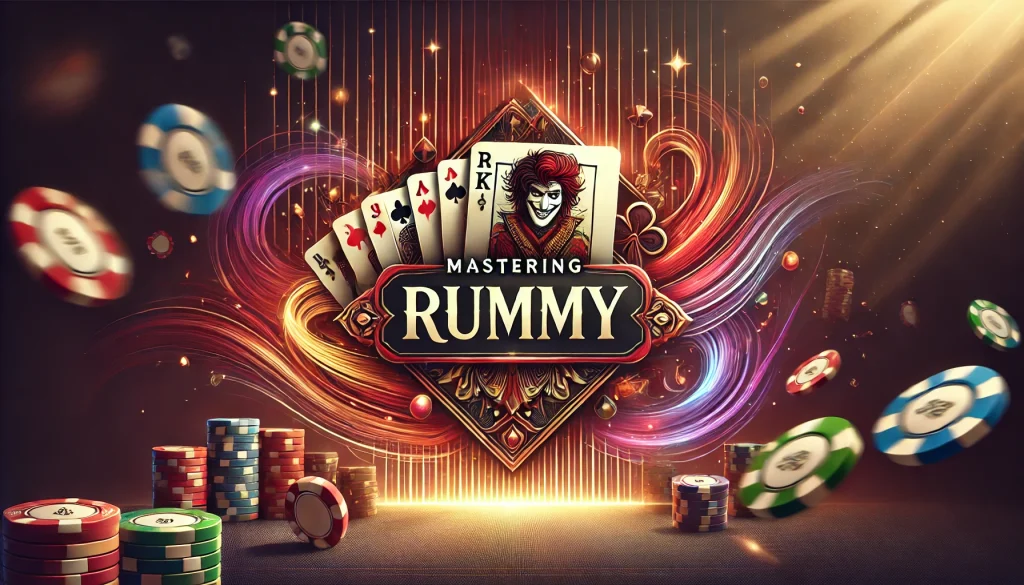
Understanding Rummy: rummy culture A Complete Guide The popular card game of rummy has enthralled players worldwide with its unique combination of strategy, skill, and a dash of luck. Forming sets and Classic 777 Slots APK runs from a standard deck of cards is the fundamental aspect of the game. A run is a series of three or more cards in the same suit, whereas a set is made up of three or four cards of the same rank but different suits. Combining these combinations is the 777 slots goal in order to reduce the number of points you have left when another player leaves. Gin Rummy, Indian Rummy, and Kalooki are just a few of the many variations of the game that can be played with two or more players.
Though the basic ideas are the same, each variation has its own set of guidelines. Players alternately draw and discard cards in an effort to get better hands while watching what their rivals do. Any player hoping to succeed in rummy must comprehend the fundamental guidelines and goals. Reading opponents and forming melts. A good strategy is to concentrate on making melds as fast as you can while simultaneously monitoring the cards that your opponents are discarding.
This dual focus enables players to anticipate their opponents’ needs and enhance their own hands, possibly preventing them from finishing their melds. Memory and Card Counting. Counting cards and remembering them are two more crucial components of strategy. A useful way to learn what your opponents might be holding is to keep track of the cards that have been played. You can modify your approach, for example, by choosing to keep lower-value cards that are less likely to be melded by others, if you observe that a number of high-value cards have already been thrown out.
Strategic Adaptability. In a close game, this tactical adaptability could mean the difference between victory and defeat. A key component of Rummy that has a big influence on the game’s result is discarding.
Players must use caution when discarding cards because doing so may unintentionally help an opponent finish their melds. Novice players frequently make the error of discarding high-value cards without thinking through the possible repercussions. For instance, you might unintentionally assist an opponent in finishing a run if you discard a King of Hearts after they have already collected multiple Hearts. Players should think about their opponents’ tendencies and the visible cards on the table in addition to their own hand when making a smart discard.
It might be wise to refrain from discarding any cards from a certain suit if you observe that your opponent is gathering cards from that suit. You can also make better decisions about your own discards by monitoring which cards have been taken from the discard pile, which can give you information about what your opponents are attempting to accomplish. At the core of rummy is melting, which calls for both skill & intuition to master. In order to be flexible in the face of shifting conditions while playing, players should strive to create melds as quickly as possible. Since runs typically provide more card combination flexibility than sets, it is a useful strategy to prioritize forming runs over sets whenever feasible. Players should also pay close attention to when they meld.
If you reveal your melds too soon, your opponents may be able to learn important details about your hand and modify their strategy accordingly. On the other hand, hanging onto your melds for too long can result in lost outing opportunities. The secret to mastering rummy is finding a balance between revealing your melds and keeping things unexpected. The ability to manage your hands well is crucial for rummy success.
In order to minimize deadwood—cards that don’t contribute to any melds—players should aim to keep a balanced hand that permits several melding paths. Assessing your hand frequently and determining which cards are most likely to be included in a meld is a useful strategy. You can prioritize which cards to keep and which to discard with the aid of this assessment. Players should also understand the value of flexibility in hand management. It’s critical to modify your strategy as the game goes on and new cards are drawn or discarded.
For example, if you started out aiming for a particular run but find that it’s getting harder to finish, think about shifting your attention to forming sets. You can keep your opponents guessing and increase your chances of success by being flexible. A considerable edge in rummy can be gained by having a thorough awareness of your opponents’ playing strategies. Through analyzing their draws and discards, players can learn about their tactics & possible melds. An opponent may be attempting to form a run in a suit if, for instance, they routinely discard cards from that suit while picking up cards from that suit.
Making the most of these trends requires both offensive and defensive tactics. On the one hand, you can decide to discard cards that, given their noted patterns, are less likely to aid your opponents. However, you can also utilize this data to guide your own choices regarding which cards to pursue or keep. You can put yourself in a better position to win the game by remaining aware of your opponents’ actions. A number of sophisticated strategies can be used by those who want to improve their Rummy abilities beyond the fundamentals.
By purposefully discarding cards that they think will make it more difficult for their opponents to form melds, players employ a tactic called “blocking.”. This tactic necessitates closely observing and analyzing the hands and tendencies of opponents. “Baiting” opponents into picking up specific cards is another sophisticated tactic. Discarding a card that seems helpful but is actually part of a dead end for your hand could lead to an opponent making a bad choice that could help you later on in the game. When used skillfully, this psychological component of rummy can result in major advantages & add an interesting layer to gameplay. To become proficient at Rummy, as with any skill-based game, consistent practice is necessary. Playing frequently enables players to hone their tactics, strengthen their hand management abilities, and gain a deeper comprehension of the subtleties of the game.
Playing against a variety of opponents exposes players to a range of tactics & styles of play, which increases their adaptability. Also, practice increases one’s confidence in one’s ability to make decisions while gaming. As players gain more knowledge of the rules and tactics of rummy, they are better able to make snap decisions when things get tight. Gaining proficiency in this captivating card game requires constant practice, whether you’re playing with friends or competing in tournaments.
In summary, mastering Rummy necessitates a combination of knowing the basics of the game, creating winning strategies, controlling your hand sensibly, identifying your opponents’ patterns, using sophisticated strategies, and making a consistent practice commitment. By developing these abilities & strategies, players can improve their gameplay and take advantage of all that Rummy has to offer.lottery sambad old



